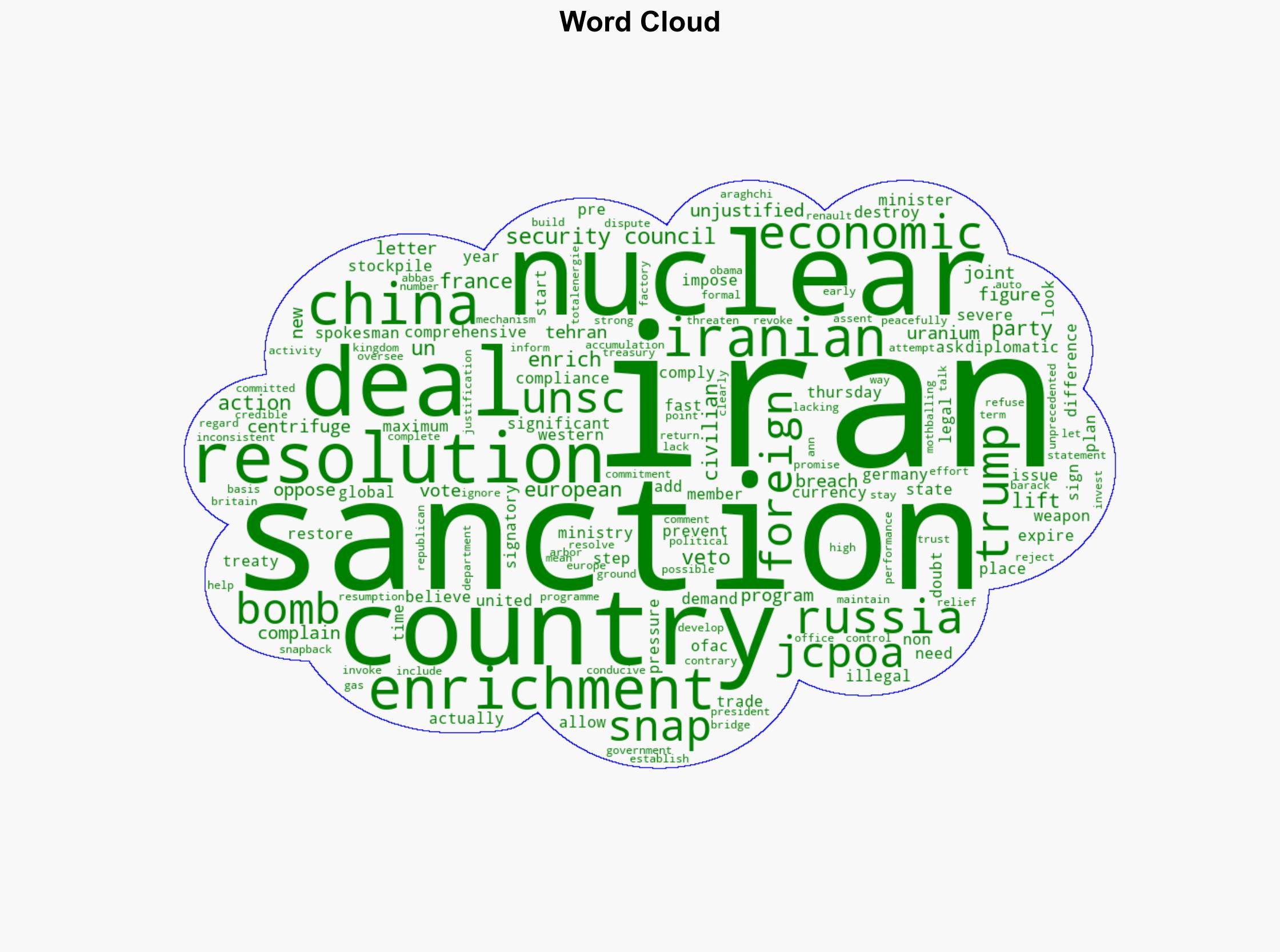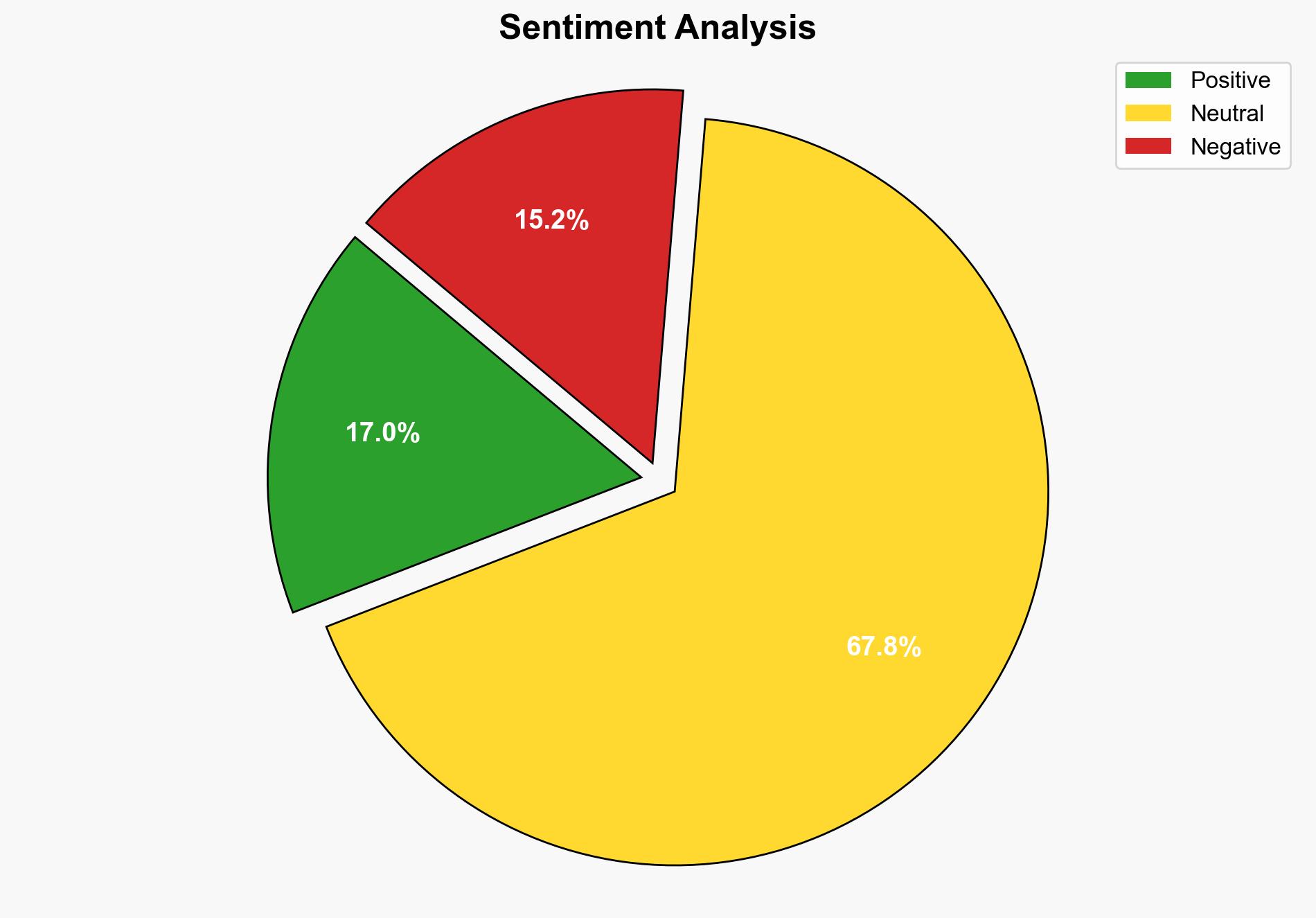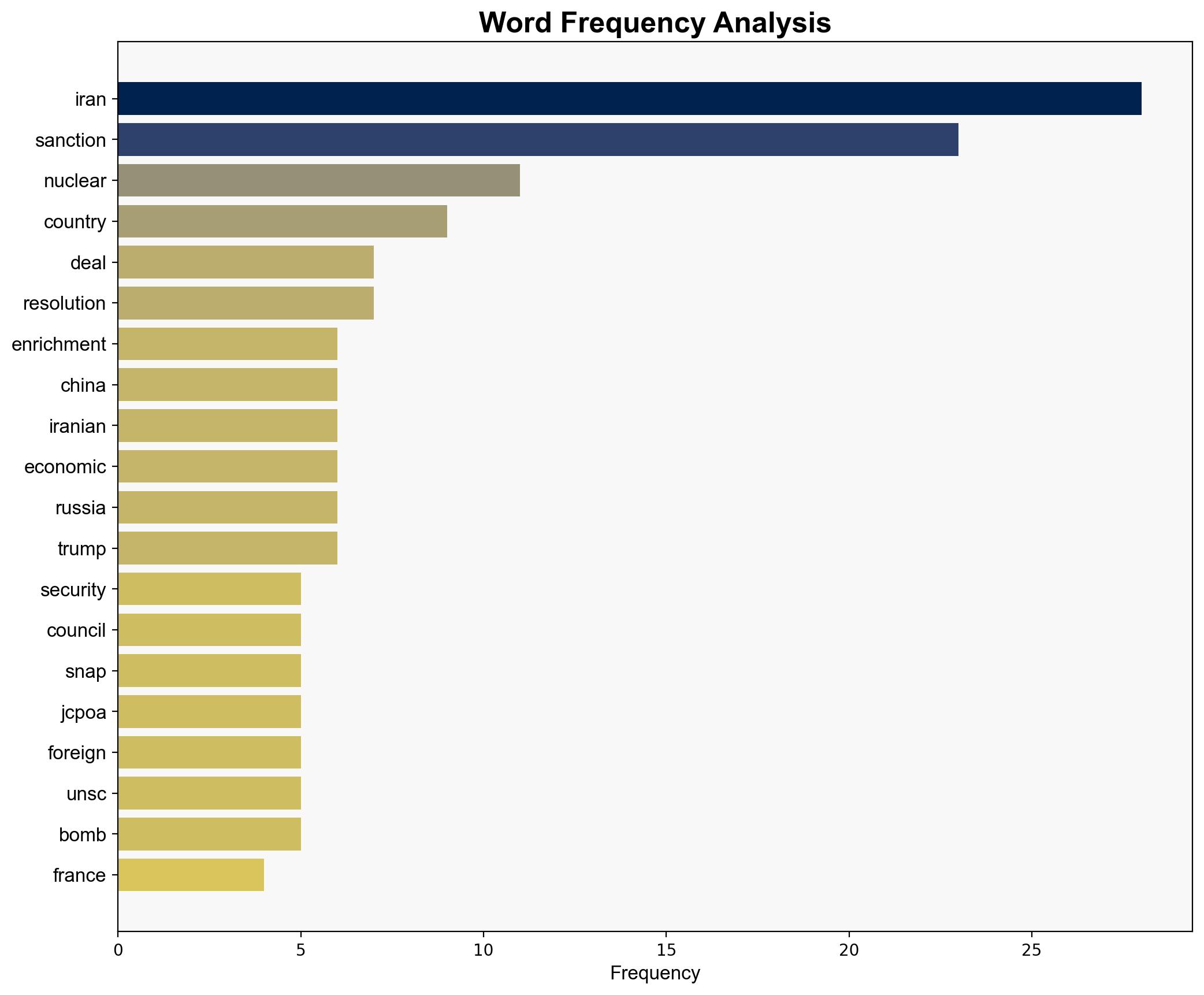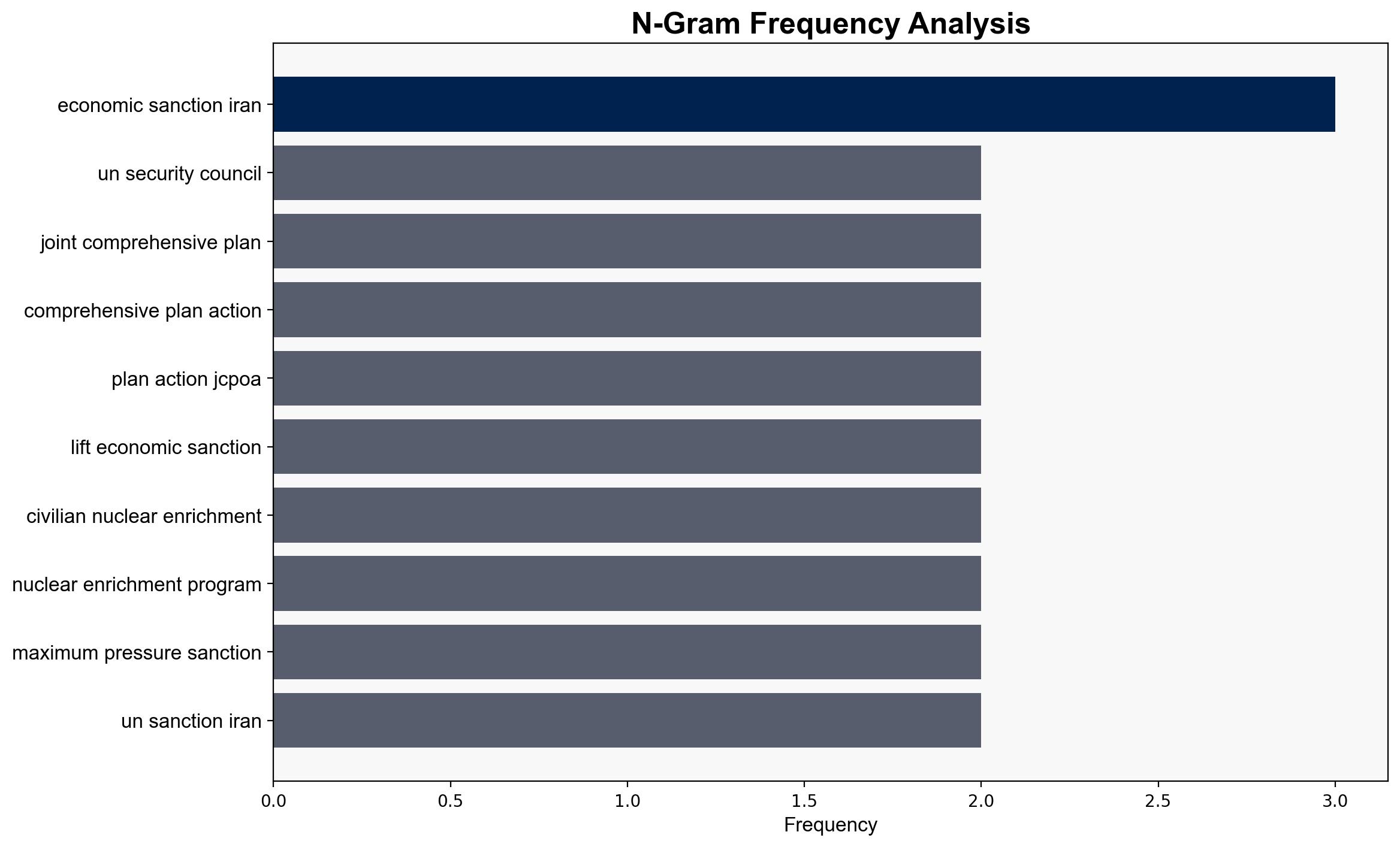Russia China reject attempt of E3 to Reimpose Sanctions on Iran over Nuclear Program – Juancole.com
Published on: 2025-08-29
Intelligence Report: Russia China reject attempt of E3 to Reimpose Sanctions on Iran over Nuclear Program – Juancole.com
1. BLUF (Bottom Line Up Front)
The most supported hypothesis is that Russia and China are strategically opposing the E3’s (France, United Kingdom, Germany) attempt to reimpose sanctions on Iran to maintain their geopolitical influence and economic interests in the region. Confidence Level: Moderate. Recommended action is to engage in diplomatic efforts to mediate between the E3 and Iran, while monitoring Russia and China’s activities for shifts in regional power dynamics.
2. Competing Hypotheses
1. **Hypothesis A**: Russia and China are opposing the E3’s sanctions to protect their economic interests in Iran and maintain regional influence.
– **Supporting Evidence**: Both countries have expressed commitment to resolving the nuclear issue through diplomatic means and have economic ties with Iran that could be jeopardized by sanctions.
2. **Hypothesis B**: Russia and China are using the situation to undermine Western influence and strengthen their geopolitical stance against the US and its allies.
– **Supporting Evidence**: The opposition to sanctions aligns with broader geopolitical strategies to counterbalance Western dominance, particularly in the Middle East.
Using ACH 2.0, Hypothesis A is better supported due to the direct economic interests and historical diplomatic stances of Russia and China regarding Iran.
3. Key Assumptions and Red Flags
– **Assumptions**: It is assumed that Russia and China have no hidden agendas beyond economic and geopolitical interests. It is also assumed that Iran’s nuclear activities are primarily civilian.
– **Red Flags**: Lack of transparency in Iran’s nuclear activities and potential undisclosed agreements between Russia, China, and Iran.
– **Blind Spots**: Potential internal political pressures within Russia and China influencing their foreign policy decisions.
4. Implications and Strategic Risks
– **Geopolitical Risks**: Escalation of tensions between Western powers and Russia/China, potentially leading to a broader geopolitical rift.
– **Economic Risks**: Disruption of international trade with Iran, affecting global oil markets.
– **Diplomatic Risks**: Breakdown of diplomatic efforts to resolve the nuclear issue peacefully, increasing the likelihood of military confrontations.
5. Recommendations and Outlook
- Engage in multilateral diplomatic talks involving all stakeholders to find a balanced resolution to the nuclear issue.
- Monitor Russia and China’s economic activities in Iran to assess shifts in regional power dynamics.
- Scenario Projections:
– **Best Case**: Successful diplomatic resolution leading to Iran’s compliance with nuclear agreements.
– **Worst Case**: Escalation to military conflict involving regional and global powers.
– **Most Likely**: Continued diplomatic stalemate with periodic escalations in rhetoric and sanctions.
6. Key Individuals and Entities
– Abbas Araghchi (Iran’s Foreign Minister)
– Ayatollah Ali Khamenei (Iran’s Supreme Leader)
7. Thematic Tags
national security threats, geopolitical strategy, economic interests, diplomatic negotiations





